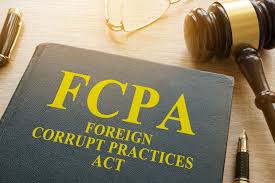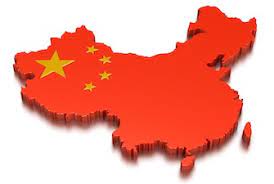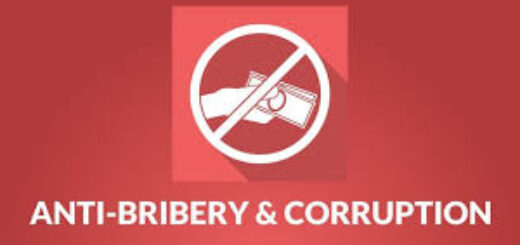3M Corp Pays SEC $6.5 Million to Resolve FCPA Charges

The SEC is having a good year in prosecuting FCPA cases. The SEC’s recent settlement with 3M Corp. for $6.5 million is its seventh corporate resolution for the year. DOJ, which has been relatively quiet so far this year, recently resolved the Corficocolombiana case, its first for the year.
3M’s conduct centered on payments for Chinese healthcare officials employed by state-owned enterprises to attend overseas conference, educational events and healthcare facility visits (“educational events”) but which were actually pretexts to provide overseas travel, sightseeing and entertainment (“tourism activities”).
Between 2014 and 2018, a 3M marketing manager in China worked with two China-based travel agencies to provide tourism activities to Chinese healthcare officials during educational events. The 3M marketing manager was assisted in this scheme by several employees in 3M-China’s sales, marketing and professional services.
The 3M-China employees targeted influential Chinese officials at state-owned customers to attend educational events based on travel itineraries that included legitimate business, training and marketing activities for review by 3M-China’s compliance personnel. In fact, 3M-China employees, working with the Chinese travel agencies, arranged alternative itineraries consisting of tourist activities in the same area as the educational events.

The 3M-China employees circulated the alternative itineraries through hand delivery or personal WeChat accounts. The employees agreed among themselves to keep the agenda hidden and falsified internal compliance documents that either denied or omitted the tourism activities that were planned as part of the overseas trip.
In several instances, the primary purpose of the overseas trip was tourism. As examples, the SEC listed the following scenarios:
- Tourism activities were scheduled at the same time as the educational event sessions;
- Educational events were conducted in English and the Chinese officials did not speak English or have translation services provided to them; and
- On several occasions, the Chinese officials missed entire days of the educational event or did not attend at all.
During the period of 2014 to 2018, 3M-China sent Chinese officials on at least 24 overseas educational events that included tourism activities. 3M employees accompanied the Chinese officials on the tourism activities. The tourism activities included guided tours, shopping visits, day trips to nearby sites and other leisure activities.

Some examples of the trips:
- A 2017 Trip to St. Paul, MN, Nashville, TN and Los Angeles, CA: A nine-day trip for 11 Chinese officials. The false itinerary included only one day of educational events, while the real itinerary had 10 days of tourist activities.
- A 2017 Trip to Boston, MA and St. Paul, MN: A seven-day trip for 12 Chinese officials. While the false itinerary had educational events scheduled for each day, the real itinerary had primarily tourist activities.
- A 2016 Trip to Chicago, IL: An eight-day trip for 5 Chinese officials, including two spouses. One Chinese official and his spouse left Chicago in the evening after the educational event started and returned after the event to attend tourist activities. Another official attended one day of the educational event, then left Chicago and never returned. Three other Chinese officials participated in tourism activities every day, and did not attend any educational activities, In addition, the three Chinese officials did not attend a dinner that 3M organized for them.
- A 2016 Brisbane and Sydney, Australia Trip: An eight-day trip for 4 Chinese officials. The fake 3M agenda had educational activities listed for each non-travel day. The real itinerary scheduled only two half-days for educational events, with the bulk of the time scheduled for tourism activities. Some of the Chinese officials did not attend any educational events.
To fund the illegal scheme, the 3M-China employees colluded with the travel agencies to have them submit inflated invoices for legitimate, line item expenses (e.g. travel costs). In other instances, the 3M-China employees submitted fake invoices directly to the travel agencies. In other cases, the travel agencies, with the support of the 3M-China employees, directed 3M-China’s distributors to pay for a portion of the non-reimbursable expenses.

To ensure that the improper tourism activities generated increased sales of 3M products, 3M-China employees tracked the impact of providing overseas educational events on 3M’s sales to state-owned customers. One 3M-China employee specifically tracked sales after a trip to ensure that 3M-China was meeting its sales performance targets. 3M-China management requested information concerning “return on investment” from educational events by comparing sales figures before and after the events.
From 2014 to 2017, 3M-China paid nearly $1 million to fund at least 24 trips for Chinese officials, The costs of these trips were improperly recorded in 3M’s books and records as legitimate business expenses. As a result, 3M improperly benefited by at least $3.5 million in increased sales.
3M-China employees arranged for 3M to pay funds to the travel agencies which were used to offset some of costs of tourism activities. 3M lacked oversight over the use of these funds and were distributed at the discretion of the travel agency and the 3M-China employees. 3M paid out $254,000 to a travel agency described as “marketing.”
3M was credited for promptly self-reporting the conduct, cooperation and remediation efforts. 3M also undertook remedial measures including disciplining and terminating employees, terminating its relationships with the travel agencies and implemented enhanced controls over its cross-border fund transfers.














